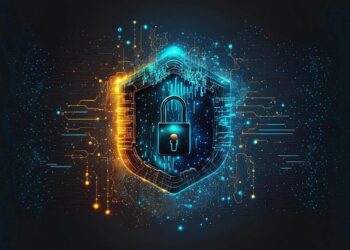US Marine Corps, FALLUJAH, Iraq: From roadside bombs to small arms fire to rocket attacks, Iraq can often be a dramatically unstable and dangerous place where enemy fighters hide amongst innocent civilians.
Marines with 2nd Battalion, 6th Marine Regiment, Regimental Combat Team 6, are letting technology be their guide in the effort to separate the terrorists from the Iraqi innocents.
A key asset in this effort is the Biometrics Automated Toolset. This high-tech system was initially fielded to identify people brought to military detention centers, according to the International Biometric Group in New York, which does work for the Department of Homeland Security and other federal clients. Over time, however, BAT has becoming a valuable and widely-applied system database used every day by many units, including the Camp Lejeune-based “Ready Battalion.”
“The BAT system is a computer system that identifies people and makes a record of said individual,” said South Brunswick, N.J., native Cpl. Jonathan H. Rudolph, the BAT system noncommissioned officer with 2/6. “The system includes a laptop with the BAT software, a fingerprint scanner, an iris scanner, a camera and an ID card printer.”
The ID badges are provided to all citizens residing within the city. By controlling the routes in to and out of the city via entry control points, or ECPs, and only providing Iraqis identified as Fallujah residents with badges, it creates an obstacle to terrorists posing as residents.
“With the occupation here, badges have become part of the Iraqis’ way of life,” Rudolph said. “Traveling to another city or just the other side of Fallujah, the citizens need the badges we create to pass through ECPs manned by either Marines or (Iraqi Police).”
Marines posted at ECPs throughout the city have BAT system capabilities. Although these Marines don’t create the badges, they do have iris scanners and connectivity to the shared database housing thousands of records. Using iris scans or fingerprinting, the Marine on post can access information such as the person’s birthday, their job, place of residence and also any documentation if they have been involved in or have been associated with anyone involved in terrorist activities.
“With this badge we can see all their info, such as when and why they have been detained in the past or if he’s a known informant,” said Lance Cpl. Chris T. Neunriter, one of the BAT system operators.
He continued to explain, for example, if an improvised explosive device or weapons cache is found, the immediate area is swept for fingerprints. If the fingerprints come up positive on someone’s profile in the database, the information is updated and the threat status is changed on the resident.
“This is the quickest and most convenient way to see if a person is shady or not,” said Cpl. Josslyn D. Selzer, the corporal of the guard at an ECP in the city. “If we run someone’s badge number and they pop positive on a threat status, we take them in.”
The ID badges and BAT system are the primary line of the strategic defense of the people of Fallujah, Neunriter explained.
“In the long run, I can see the BAT (system) become a concrete foundation for a future Iraqi identification system,” Rudolph said. “It won’t be anything like Social Security numbers that Americans have, but it’s a solid start.”
The small number of Marines operating the BAT systems have completed, updated and renewed over 5,200 ID cards since the beginning of June. While cooperation with the identification system is not mandatory, Brown said most Iraqis submit to the system willingly with the goal of a peaceful Fallujah on their minds.
“The one thing that stands out the most in my mind is the enthusiasm of the local Iraqis. You can tell they want their neighborhoods back,” said Brown. “Many of them are willing to do whatever it takes to provide a safe environment for their friends and families to live and work in. It’s a good feeling to know that we are part of something that will change the future of this country, to see the city in the hands of the people. That’s where it belongs after all.”
DoD Tests AI Software, Advances to Improve Physical Security Posture
Hours before dawn, under the veil of a new moon, two figures in military fatigues grapple like Greco-Roman wrestlers within...









